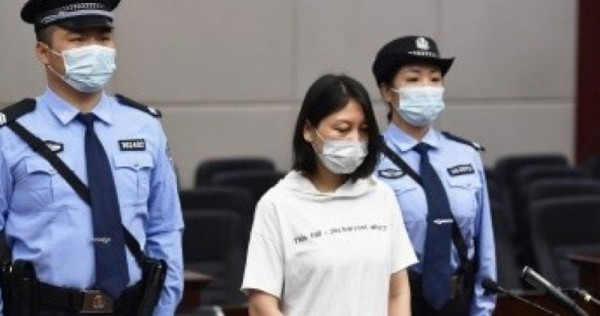China witnessed the execution of one of its most infamous criminals, Lao Rongzhi, on Monday morning in Nanchang, East China's Jiangxi Province, according to a report by the state-run Global Times. The execution comes after a prolonged legal battle and sheds light on a gruesome spree of crimes that rocked the nation between 1996 and 1999.

Who is Lao Rongzhi
Lao Rongzhi a female serial killer gained notoriety for her involvement in a series of heinous crimes, including robbery, extortion, and the brutal murders of seven individuals, including a child. Last year, the Jiangxi Provincial High People's Court upheld the death sentence imposed on Lao, highlighting the severity of her crimes. Her appeal, heard in August, underscored the chilling details of her criminal activities.
Modus Operandi
Chinese media reports reveal a disturbing modus operandi employed by Lao Rongzhi. She meticulously selected her targets at entertainment venues, while her former boyfriend, Fa Ziying, carried out the gruesome acts. The duo intentionally and unlawfully took the lives of multiple individuals, resorting to violence or threats to illegally acquire their property. In addition to the murders, Lao and Fa engaged in kidnapping, leveraging it to extort money or valuables from their victims.
In Nanchang, she persuaded one of the victims, named Xiong, to come to her apartment. Together with her friend Fa, they robbed and killed him and later dismembered his body. Lao used a key she took from Xiong to enter his home with Fa, they stole things from there too. To ensure no evidence was left, they also murdered Xiong's wife and their 2-year-old daughter.
The situation changed when the police caught Fa at a rented house in Anhui in 1999. He was executed later that year. However, Lao managed to escape and didn't face the consequences for what she did until 2019.Evading capture for about two decades, Lao managed to stay on the run by using aliases until her eventual arrest in Fujian province in 2019.
Legal Proceedings
A case was registered against her, and People Court of Nanchang awarded her death sentence after two years. Last year, the Jiangxi Provincial High People's Court upheld the death sentence imposed on Lao, who had appealed the verdict handed down by the Intermediate People's Court of Nanchang, Jiangxi, nearly a year earlier. The high court's decision, made in August, reinforced the gravity of her crimes.
In China, when a lower court gives someone the death penalty, it has to be checked and approved by the Supreme People's Court before it can be carried out. In Lao's case, the top court wanted to make sure her legal rights were fully protected, so they asked her questions during the review period. Her lawyer was allowed to see all the information about the case, talk to Lao, and share their defense opinions.
According to the top court, Lao and her boyfriend Fa Zi-ying worked together to commit robberies, kidnappings, and killings in different provinces from 1996 to 1999. Lao chose the targets at places like entertainment venues, while Fa was the one who attacked them violently. Their actions led to the deaths of seven people, including a child, and some of the victims' bodies were treated very badly.
While clarifying that Lao's behaviors constituted the crimes of intentional homicide, robbery and kidnapping, the top court stressed the crucial role she played in the multiple killings, saying she should be punished as a principal offender.
Alongside the capital punishment, Lao had her political rights revoked, and all her assets were confiscated due to her role in the heinous acts, which also included robbery and kidnapping.
The execution of Lao Rongzhi not only marks the end of a prolonged legal process but also serves as a somber reminder of the dark chapter in China's history of heinous crimes.









